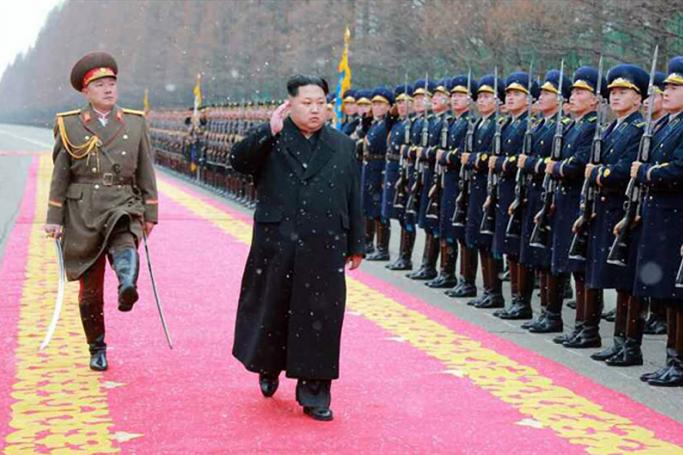Myanmar’s Ministry of Foreign Affairs issued a statement last night condemning North Korea’s recent detonation of a hydrogen bomb. Despite experts and foreign countries claiming it was not a hydrogen bomb, the dismissal is a step away from Myanmar’s shady past.
It comes a week after the Democratic Republic of Korea announced it had successfully detonated a “hydrogen bomb,” which it now claims has the ability to destroy the USA. Yet, experts claim that the blast may not have been a hydrogen bomb, based on seismological readings.
“The Ministry of Foreign Affairs of the Government of the Republic of the Union of Myanmar expresses its deep concern on the recent hydrogen bomb test conducted by the Democratic People’s Republic of Korea on 6 January 2016,” read the press release.
It also stated that the test was a “violation of the relevant United Nations Security Council Resolutions” and that it “undermines the international non-proliferation regime and increases tension in the Korean Peninsula.”
Myanmar became a non-nuclear state signing a non-proliferation treaty in 1992, three years later it signed the Southeast Asia Nuclear-Weapon-Free Zone Treaty. Also in 1995, it signed a Comprehensive Safeguards Agreement and a Small Quantities Protocol with the International Atomic Energy Agency.
In September 2013, Myanmar’s reformist government signed an additional protocol but is yet to ratify the agreement. It has also signed, but not ratified, the Comprehensive Nuclear Test Ban treaty.
Towards the end of the release Myanmar’s government “urges” North Korea to “comply with the United Nations Security Council’s resolution.”
Part of Myanmar’s nuclear history with North Korea surfaced when former army Major Sai Thein Win (who had then recently defected) shared photographs and documents pertaining to a nuclear linkage, with International Atomic Energy Agency inspector Robert E. Kelley. Kelley was lead to believe that Myanmar’s, “technology is only for nuclear weapons and not civilian use or nuclear power."
He also remarked it would be difficult due to its lack of technical and financial capabilities.
Yet some dispute the Major’s evidence and Mr. Kelley’s findings saying that the equipment could be used for producing, “rare earth metals or metals such as titanium or vanadium."
In a recent interview with Mizzima US Ambassador to Myanmar, Derek Mitchell spoke of Myanmar-North Korean relations.
“This country needs to think hard about its relationship with North Korea a diplomatic relationship [and] we still have some question about the military relationship.”
Adding, “There is certainly a lot of progress with the engagement since I’ve arrived here and before I arrived here with that discussion. So there are lingering questions we might have. More transparency about the previous relationship and the state of the relationship diplomatic and otherwise today.”
You are viewing the old site.
Please update your bookmark to https://eng.mizzima.com.
Mizzima Weekly Magazine Issue...
14 December 2023
Spring Revolution Daily News f...
13 December 2023
New UK Burma sanctions welcome...
13 December 2023
Spring Revolution Daily News f...
12 December 2023
Spring Revolution Daily News f...
11 December 2023
Spring Revolution Daily News f...
08 December 2023
Spring Revolution Daily News f...
07 December 2023
Diaspora journalists increasin...
07 December 2023
Exclusive Interview with Bangladesh Ambassador












